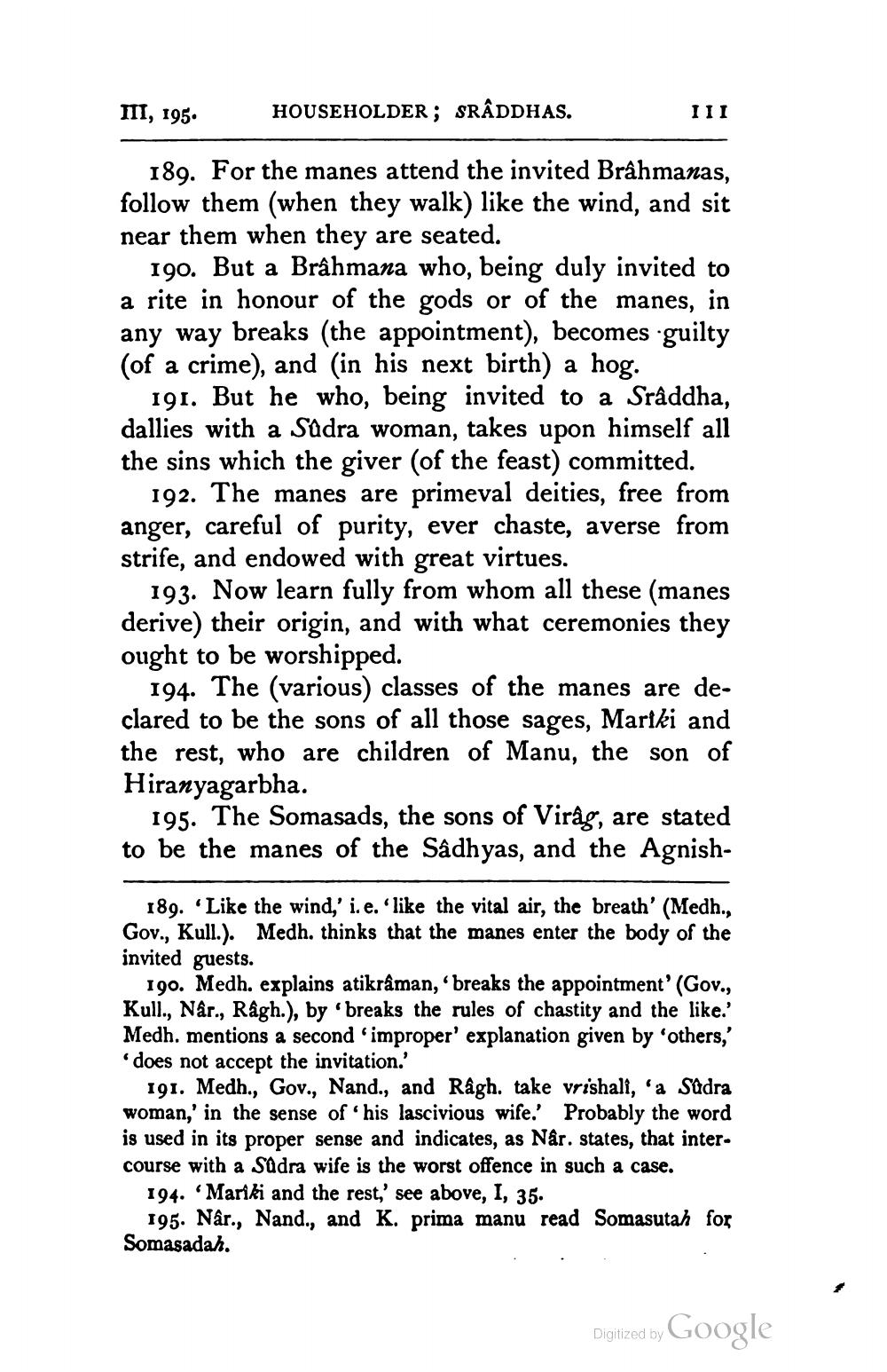________________
III, 195.
HOUSEHOLDER; SRÂDDHAS.
III
189. For the manes attend the invited Brâhmanas, follow them (when they walk) like the wind, and sit near them when they are seated.
190. But a Brâhmana who, being duly invited to a rite in honour of the gods or of the manes, in any way breaks (the appointment), becomes guilty (of a crime), and (in his next birth) a hog.
191. But he who, being invited to a Sraddha, dallies with a Sudra woman, takes upon himself all the sins which the giver (of the feast) committed.
192. The manes are primeval deities, free from anger, careful of purity, ever chaste, averse from strife, and endowed with great virtues.
193. Now learn fully from whom all these (manes derive) their origin, and with what ceremonies they ought to be worshipped.
194. The (various) classes of the manes are declared to be the sons of all those sages, Mariki and the rest, who are children of Manu, the son of Hiranyagarbha.
195. The Somasads, the sons of Virág, are stated to be the manes of the Sâdhyas, and the Agnish
189. Like the wind,' i.e. ' like the vital air, the breath' (Medh., Gov., Kull.). Medh. thinks that the manes enter the body of the invited guests.
190. Medh. explains atikraman, 'breaks the appointment' (Gov., Kull., Nár., Ragh.), by breaks the rules of chastity and the like. Medh. mentions a second 'improper' explanation given by others, does not accept the invitation.'
191. Medh., Gov., Nand., and Râgh. take vrishali, 'a Sudra woman,' in the sense of his lascivious wife.' Probably the word is used in its proper sense and indicates, as Når. states, that intercourse with a Sodra wife is the worst offence in such a case.
194. Mariki and the rest,' see above, I, 35.
195. Når., Nand., and K. prima manu read Somasutah for Somasadah.
Digitized by Google




